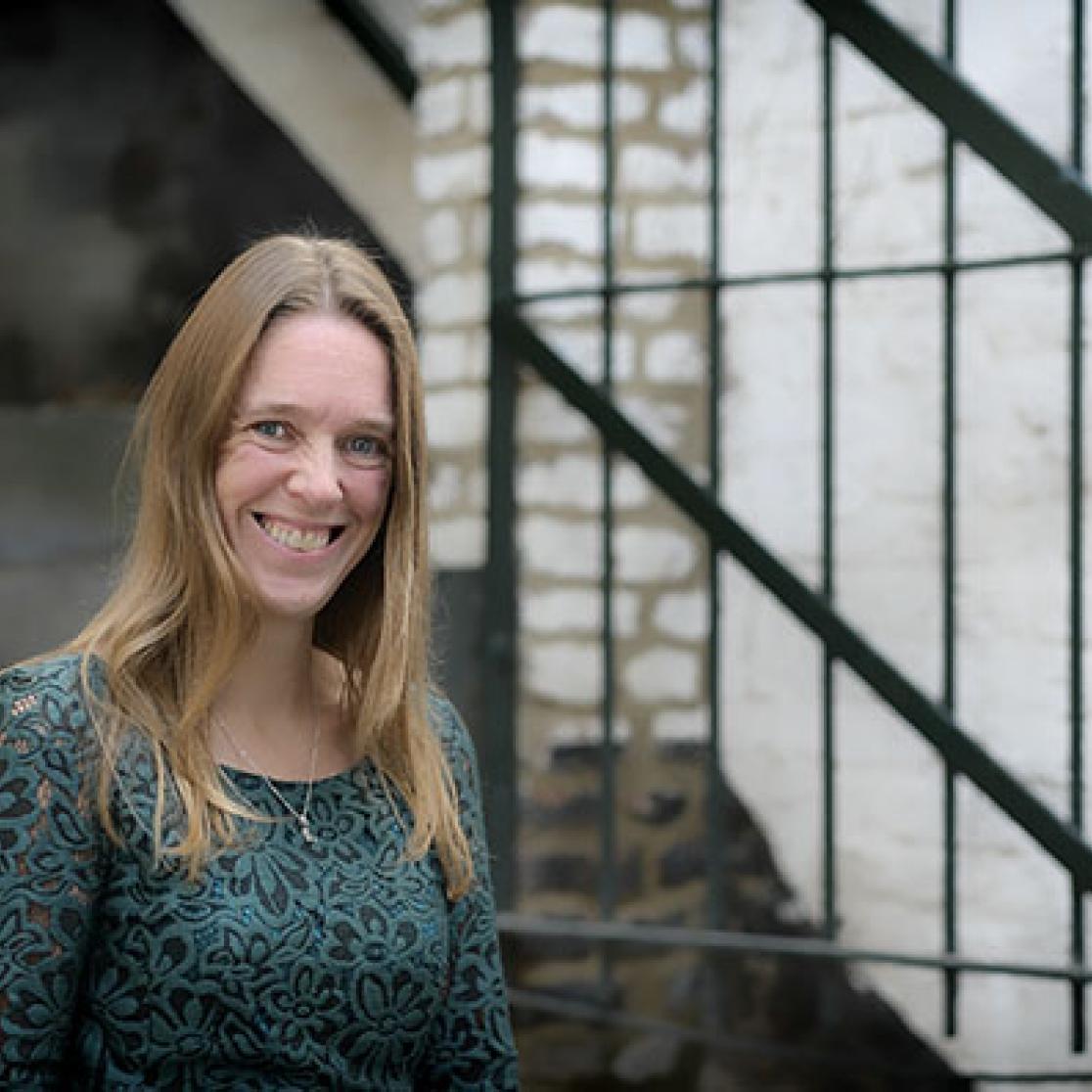Broad international classroom offers added value
The number of foreign students arriving at Dutch universities will not be restricted, at least for the time being. This is a good thing, according to ongoing research by Carla Haelermans from the School of Business and Economics (SBE) and Patrick Bijsmans from the Faculty of Arts and Social Sciences (FASoS). “Students, including Dutch ones, perform exceptionally well in tutorial groups with a mix of nationalities. And internationalisation is the future. You can’t put restrictions on that.”
Just this morning, UM president Rianne Letschert lashed out in the regional newspaper at Robbert Dijkgraaf. The education minister hinted that he wants to impose a measure that would limit the influx of foreign students. They are alleged to squeeze out Dutch students, cost the state money, fuel the Anglicisation of higher education and exacerbate the housing problem. But none of these arguments hold water, in Letschert’s view—including at Maastricht University, where over 12,500 out of 22,000 students hold a foreign passport. The minister will soon change his mind on the matter, though it remains unclear whether the last word has been said.
For researcher Patrick Bijsmans, the discussion is hardly new. “It flares up again every few years. Personally, I wouldn’t think it wise to put a brake on the arrival of foreign students. Maastricht is an international university. Students choose consciously for our international degree programmes as well as Problem-Based Learning. I find the broad input of different nationalities in the tutorials very valuable. And isn’t this exactly what we want—an inclusive society in which we break down borders?”
According to Carla Haelermans, professor of Education Economics, UM’s international character is indisputable. “When I look at our students’ results and how they land on their feet in society, I can only be positive. They learn so much from one another. The more diverse their backgrounds the better.”
International classroom
The question is whether an international classroom is demonstrably better than a programme with students who all share the same national background. To find out, Bijsmans and Haelermans initiated a new research project in early 2020. “Some earlier studies on international classrooms identified certain challenges, while others emphasised the positive outcomes of international groups,” says Bijsmans, who is mainly involved in the qualitative side of the research. “We published our own study in 2021 on the international classroom at FASoS, in which we concluded that students generally benefit from the interaction with fellow students of different nationalities—provided there’s a good balance in the group. Now we’re taking an even more rigorous approach. We’ve collected much more data, and this time we’re also observing groups and talking to both students and tutors.”

Patrick Bijsmans is associate professor of Teaching & Learning European Studies and vice dean of education at FASoS. He conducts research on Problem-Based Learning and curriculum design in European Studies, as well as on EU democracy, media and Euroscepticism. Bijsmans is a member of the university's Learning & Innovation Taskforce and the editorial board of the Journal of Political Science Education.
Optimum
“One thing we want to know is whether there’s an optimum number of nationalities in a tutorial group,” says Haelermans, who focuses on the quantitative side. “We’re also looking beyond FASoS. The study includes 12 English-taught bachelor’s programmes across all faculties except the Faculty of Health, Medicine and Life Sciences, where the main language of instruction is Dutch.” Data on students’ nationalities, prior education, previous grades and more are being collected and analysed; the tutorials observed and video recorded. “And we’re interviewing students from these groups as well as their tutors. This should give us a well-rounded picture of the effectiveness of the international classroom.”
Group dynamic
Ideally, the research would have been completed already. Instead it was delayed by covid. “Many tutorials were cancelled and replaced by online meetings, whereas we really need to see the group dynamics in action,” Bijsmans explains. “How do young people function in a group of up to eight nationalities? Does proficiency in English play a role? Does having a particular national background influence the discussions? How does the tutor deal with diverse nationalities?”

Carla Haelermans is professor of Education Economics at SBE and chair of the UM Learning & Innovation Taskforce. She is also national coordinator of the Netherlands National Cohort Study on Education (NCO). Haelermans studied economics in Maastricht, where she obtained her PhD for her research on educational productivity and efficiency.
Conclusions
The findings should be available by the summer of 2023. Reluctantly, the researchers hint at some of their conclusions, but are keen to stress their preliminary nature. “What we’re seeing is that the current composition of the tutorial groups works very well,” Haelermans says. “Whether four or eight nationalities are represented, the study results and personal experiences—for the Dutch and international students alike—barely deviate from the usual picture. This also undermines the idea that some international students benefit disproportionately from English as the language of instruction, or that Dutch students are being pushed out. It doesn’t matter.”
Personality
“We do see a slightly negative effect if only two or three nationalities are represented in the group,” Bijsmans adds. “It’s actually more beneficial to have more nationalities in the classroom. From this we can cautiously conclude that a diverse international classroom offers added value. The analyses and interviews also show that for the students it doesn’t matter where someone comes from. They’re more interested in one another’s opinions and visions, in their personalities, rather than nationalities. I like that: it’s about personality, diversity, content, not about background.”
"Whether four or eight nationalities are represented, the study results and personal experiences—for the Dutch and international students alike—barely deviate from the usual picture. This also undermines the idea that some international students benefit disproportionately from English as the language of instruction."
Carla Haelermans
Publications
The research should lead to several publications in international journals. “We worked with strict protocols to ensure objectivity. We see this research as a validation of our education system, but also as a contribution to the internationalisation of education. Society is becoming increasingly global and complex. That calls for a broad, cross-border approach to education.”

Jos Cortenraad (text) Ted Struwer (illustrations)
Also read
-
A new wave of talent emerges from the School of Business and Economics
On Sunday, November 30, 2025, the Maastricht University School of Business and Economics (SBE) proudly celebrated the achievements of over 1,461 graduates from both bachelor’s and master’s programs. The festive ceremony took place at the MECC Maastricht and marked a significant milestone for the SBE
-
Roy Broersma (CEI): Guiding Aestuarium from idea to venture
Roy Broersma, director of the Center for Entrepreneurship & Innovation (CEI) at SBE, has been closely involved in guiding Aestuarium from an early student startup to a growing venture. From spotting their potential during the Brightlands Startup Challenge supporting them through CEI.
-
From Study to Startup: The story behind Famories
When Lennie and Neele graduated, while many of their classmates were busy fine-tuning CVs and stepping into roles at top companies, they took a detour by recording podcasts with their grandmas. What began as a charming way to cherish family memories has blossomed into Famories, a vibrant startup with a...
